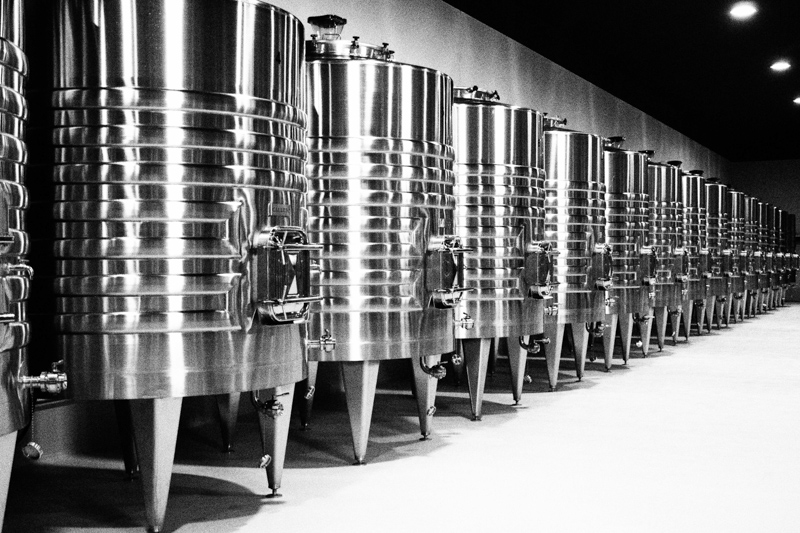Every now and then I get a request from a student of wine to answer some questions for a dissertation of some kind. I try my best to answer, but one way of justifying the time spent is then to use my answers in the form of a blog post, which is what I’m doing here. In this case, the theme was the importance of wine recommendations. These are my answers.
What do you believe the key influencer is for consumers when purchasing wine (is critics and recommendations one of these)?
It really depends on which consumers we are talking about, and in which markets. For involved consumers who have quite an interest in wine, then I think critic ratings have some relevance. Producers and retailers often use third-party recommendations as a marketing tool, and here they can be quite effective. Keen wine nuts will also read critic opinions and perhaps bear these in mind, too. In the UK, non-involved consumers are unlikely to come across critic scores and reccomendations, but they might well see competition medals and newspaper write-ups at point of sale, and there are some data indicating that International Wine Challenge medal stickers, for example, cause an upward trend in sales in supermarkets.
How important do you believe recommendations are?
I don’t have firm data, but I think that they have a strong role to play for both involved and non-involved consumers. The market is so highly fragmented with thousands of different wines, which makes choosing a wine hard. It’s almost impossible for most people to try before they buy (an exception would be shops that have inert gas dispensing machines where customers can try a small sample first, which I think is brilliant), so any guidance is useful. This might be the consumer’s familiarity with a region and then trust in the regional brand (such as Chablis or Sancerre or Barolo), or knowledge of a producer of merit (for example Penfolds or Cloudy Bay or Torres), or point of sale guidance (a medal score, newspaper mention or critic score). One other valuable recommendation is a personal one, where there is help from a sommelier or a knowledgeable staff member in a wine store or shop. I personally love the idea of developing a relationship with a caviste or wine shop, where your palate and journey are known and the recommendations can be personally tabled. I should also mention here the wine apps: these can be quite useful, although the problem is they rely on a group average score, and so many interesting wines will be penalized as some love them while others hate them.
How do you think critics and recommendations in the wine trade and for consumers have changed? And why?
I think the big difference has been the emergence of the internet and its role in wine sales. I mentioned above the rise of of wine apps, which can provide useful information. And for shopping online, many wine retail sites allow customers to leave their own reviews. These aren’t perfect, but they are better than nothing. In the future, there might be more of an impact of Instagram, for instance – people may be able to go straight from a post to a wine retailer that offers that wine, even if there is no commercial connection between the original post and the retailer.
Do you recommendations work differently for the on trade and off trade?
The on-trade often has the big advantage of staff who know their list and who are able to offer guidance. In most off-trade settings there isn’t this personal connection.
Do you think recommendations aid sales?
Yes, there seems to be evidence that in some situations third party endorsements can help sell wine. But as well as the direct influence on the consumer, we must also remember the effect of expert recommendations on the trade gatekeepers. For a consumer to purchase a wine, it has to be in front of them. In a restaurant setting consumers can only choose from what is listed. In a shop, the wine has to be on the shelf in front of them. How does the wine get there? In many cases the important role of writers and critics is in influencing the trade. I’ve often travelled, discovered a new wine, and then helped that winery connect with the appropriate UK importer. And I know that lots of trade people read my stuff. While they will never buy without trying, the weight of opinion of well travelled writers and journalists with good palates can help influence trade decisions, which is a hard thing to quantify, but an influence that I think matters a good deal. It works the other way, too: I often use the judgment of skilled buyers and importers whose palates I respect to help whittle down the wineries I visit when I travel.
Where do you believe most consumers hear recommendations?
It varies: at point of sale, through newspapers and magazines, on wine apps, on social media, and for the very high involvement consumers, through newsletter subscriptions. Then there’s also the very important face-to-face interaction with sommeliers and wine shop staff. But most in terms of numbers? I think that’s still at point of sale.
Any other information which you believe may be helpful for my dissertation on the future of critics and use of recommendations?
I’d just emphasize the importance of distribution. People can only buy the wine that is in front of them, and I’d imagine that in terms of quantity, most wine is sold independently of a recommendation. So we mustn’t forget the importance of those conversations within the wine trade, where recommendations and community judgments of quality influence buying decisions that determine which wines consumers are going to find in front of them.
1 Comment on Are wine recommendations important?

Makes sense, and like the bit about trade-trade relationships deciding what’s in front of consumers in the first place.
If the student’s interested in “the future of critics” I’d suggest they might also look at how wine critics earned their living 20 years ago, 10 years ago and now. How have the currently successful “dinosaurs” adapted and who are the new kids on the block and why have they succeeded?